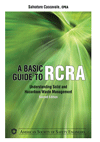Although an estimated 40,000 to 50,000 adults in the U.S. die from vaccine-preventable infectious diseases or their complications each year, the American Lung Association (ALA) says vaccines have helped reduce the rate of death and disease in the United States.
As a preventive healthcare measure, vaccines work by teaching the body's immune system to recognize and defend against harmful viruses or bacteria before getting an infection, and reduce the chance of getting certain infectious diseases. Most vaccine-preventable diseases are spread from person to person, which means that if one person in a community gets an infectious disease, they can spread it to others.
Influenza and pneumococcal pneumonia are potentially serious infections that are among those vaccine-preventable infectious diseases. August's National Immunization Awareness Month is a yearly reminder for individuals to talk to their doctor to make sure that they are up to date on their vaccinations. There are vaccine recommendations from the Centers for Disease Control and Prevention for these potentially serious lung diseases:
- Pneumococcal Pneumonia, the most common type of bacterial pneumonia, is often spread through coughing. The symptoms of pneumococcal pneumonia can come quickly and may include high fever, excessive sweating and shaking chills, coughing, difficulty breathing, shortness of breath and chest pain. The Centers for Disease Control and Prevention’s Advisory Committee recommends that all adults 65 years or older receive pneumococcal vaccination. ,
- Influenza, commonly known as the flu, is a highly contagious virus that is usually spread through coughing or sneezing. Symptoms can impact the entire body and may include fever, headache, muscle aches, a dry cough, sore throat and nasal congestion.13 The Centers for Disease Control and Prevention recommend that everyone six months of age and older receive an influenza vaccination every year.
"Older adults and those with weakened immune systems or certain chronic health conditions – like asthma or chronic obstructive pulmonary disease (COPD) – are especially vulnerable to infectious disease," said Dr. Albert Rizzo, Senior Medical Advisor to the ALA. "In fact, for adults 65 and older living with COPD, the risk for contracting pneumococcal pneumonia is 7.7 times higher than their healthy counterparts, and those with asthma are at 5.9 times greater risk."
The ALA, in partnership with Pfizer, is urging adults to talk with their healthcare provider about pneumococcal and influenza vaccination with more information available at Lung.org/pneumococcal and Lung.org/influenza, or call the ALA’s Lung HelpLine at 1-800-LUNGUSA.







